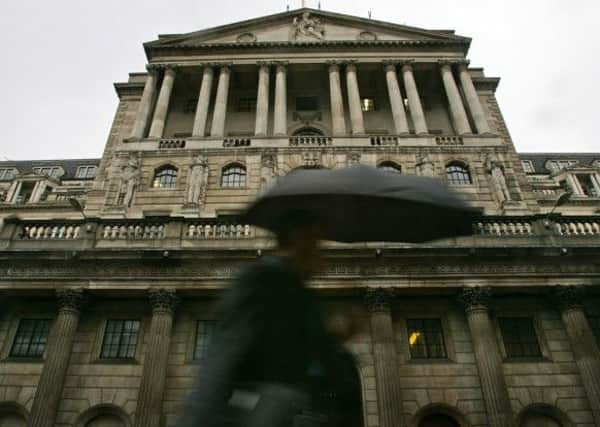Hopes pinned on FLS after business loans slump


The latest figures from the Bank of England show that net lending shrank by £4.7 billion compared with October, marking the biggest slide since the data series started in April 2011.
Lending to small firms edged up £140 million – the first increase in five months – but that was offset by a £4.8bn contraction among larger businesses.
Advertisement
Hide AdAdvertisement
Hide AdBarclays economist Blerina Uruci described the decline, which compares with a £1.1bn drop in October, as “disappointing” and in sharp contrast to the consumer credit market, where the number of mortgage approvals has surged to its highest level in almost six years.
She added: “We do not think that a lack of bank finance is likely to be a significant impediment to business investment in the short term, as the corporate sector has amassed a large cash surplus in recent years.
“However, with SMEs being particularly dependent on bank loans to operate and invest, the restriction in bank credit cannot be healthy for the economy’s longer-term development.”
Conditions in the housing market have been boosted by the government’s Help to Buy initiative, which offers mortgages to those with a deposit of as little as 5 per cent.
However, amid fears of a looming house price bubble, the Bank of England’s Funding for Lending Scheme (FLS), which offers cheap funds to banks on condition that they pass on the benefits to customers, has withdrawn its support for mortgages to focus on boosting the supply of credit for small businesses.
Howard Archer, chief UK and European economist at IHS Global Insight, said: “It has to be hoped that this has a significant positive impulse amid a much improved business environment. While low bank lending to businesses earlier this year was clearly at least partly due to low demand for credit from companies, there are signs that firms’ desire to borrow is picking up.”
The lending figures were released as Nationwide reported that house prices rose by 1.4 per cent last month to an average of £175,826. Although this is 8.4 per cent higher than a year earlier, prices remain about 5 per cent lower than the 2007 peak.
The Bank also said that net consumer lending rose by £600m in November, up from the previous month’s £500m increase, and the Centre for Economics & Business Research (CEBR) predicted that this growth will continue in the year ahead, providing more support for the retail sector.
Advertisement
Hide AdAdvertisement
Hide AdCEBR economist Danae Kyriakopoulou said: “Credit card lending in particular recorded a sharp increase of £400m, as consumers turned to their credit cards to finance their Christmas shopping in the face of weak earnings growth.”